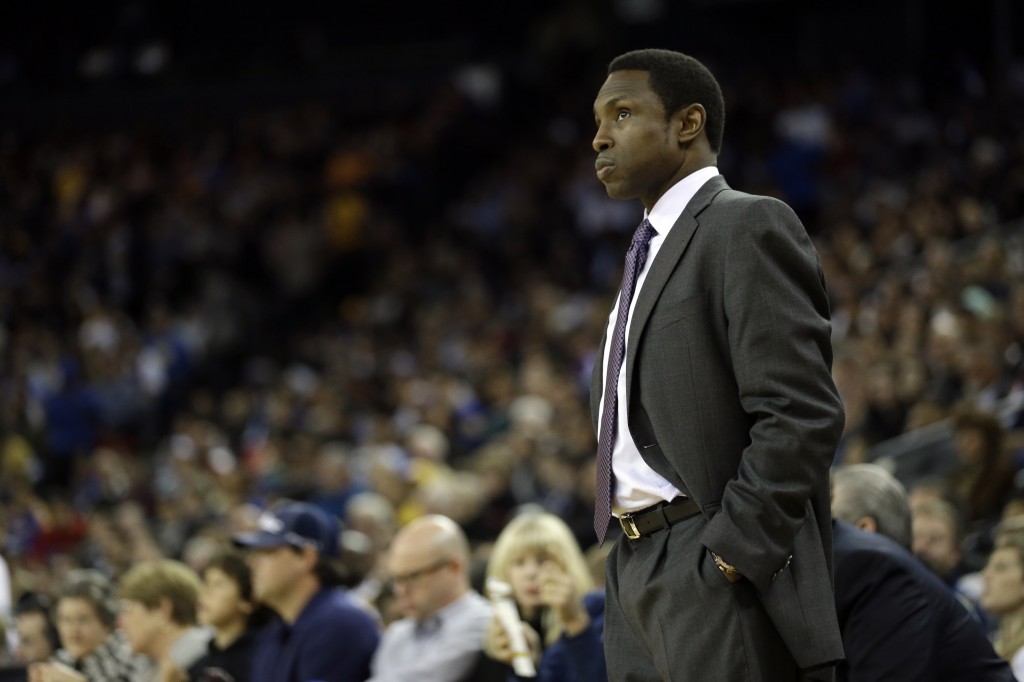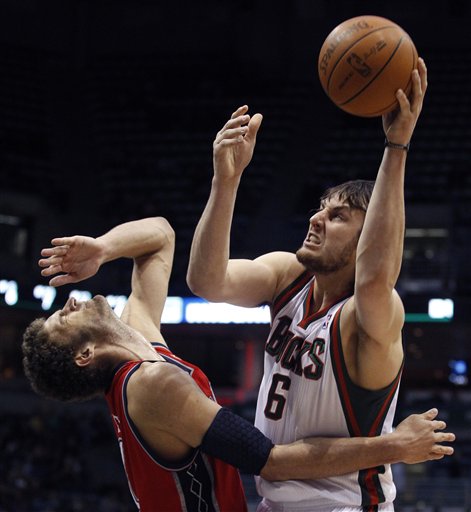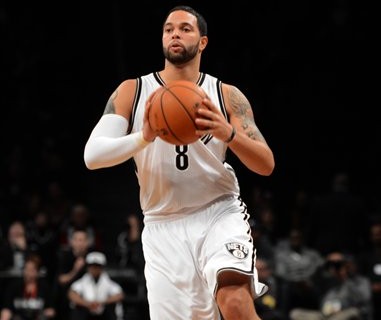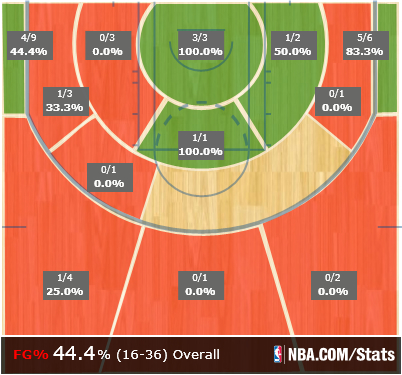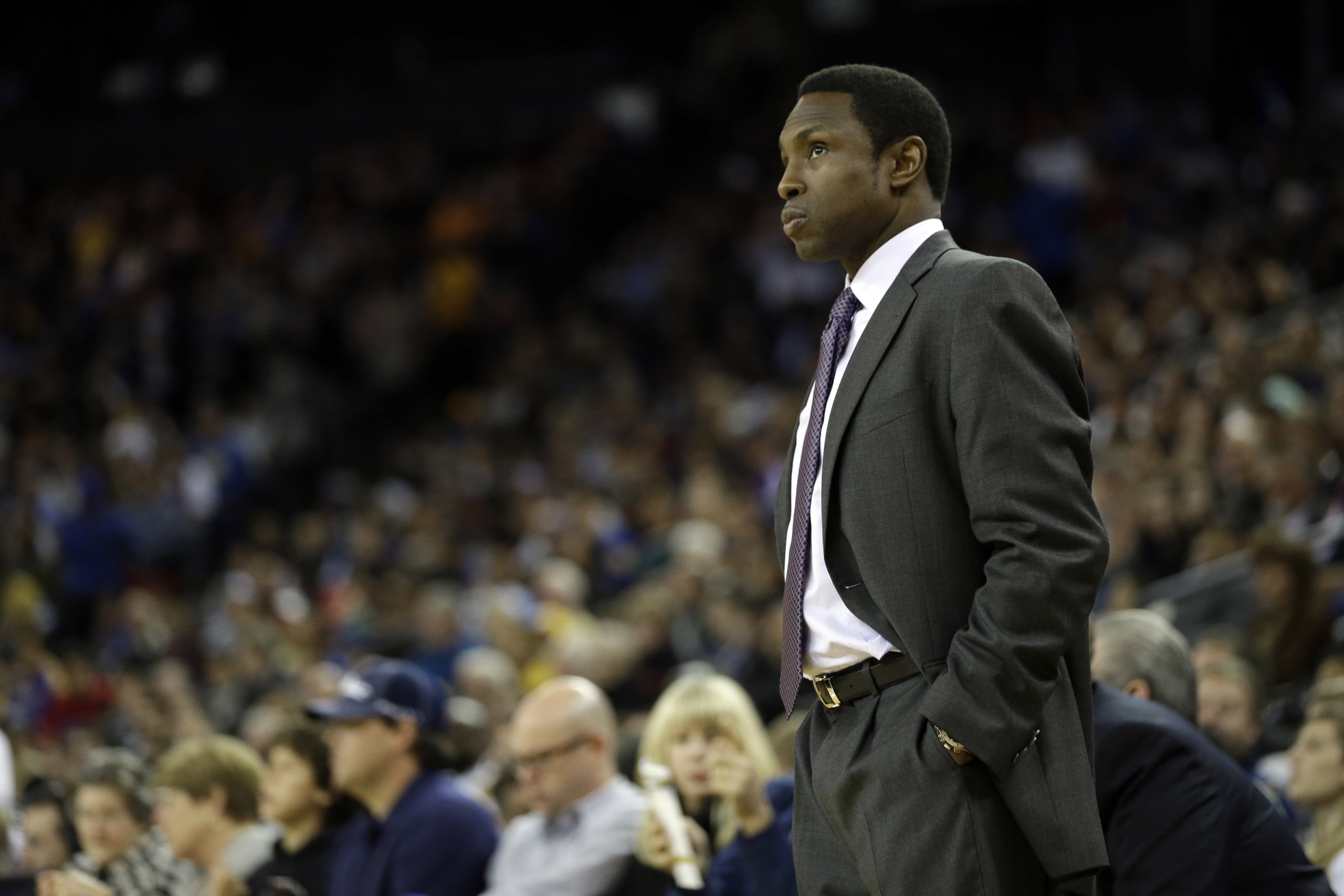
I’ve approached criticism of Brooklyn Nets coach Avery Johnson — bountiful, if you’ve read this blog’s comments or my Twitter mentions — with a long-term vision approach. I’m perfectly willing to throw out the past two seasons because of the horrendous team; I don’t care much if he can turn a bad team below average, moreso how he can lead a very good team into greatness. Johnson found success turning an offensive-minded Dallas team into a top-10 defense; with a similarly skilled roster, I was excited to see how he could maintain an excellent offensive presence while improving the defensive efficiency in Brooklyn.
To his credit, the defense is there. In bits and pieces, but it’s there. Opponents aren’t getting in the lane as much this year, the Nets are defending the three-point shot more effectively, and once-sieve Brook Lopez has begun to look like a capable (if not dominating) defensive threat. The offense is still more effective than the defense, but the Nets have made defensive, systemic strides this season. Johnson won Coach of the Month in November after leading the Nets to their best start in franchise history, and I agree with the decision.
But lately, it’s not the defense that’s worried me; it’s the offense. In critical moments in games, the Nets have stopped playing basketball, and started playing heroball. And the crux of heroball isn’t to score, but to impress: give the ball to one of your best perimeter players, and let him try to create a moment. If it works? It looks awesome! Fans go home knowing they saw something special from one of the league’s special players. But more often than not, teams go home the loser.
The Brooklyn Nets, early this season, have showed a frightening propensity for heroball:
- The Nets tried heroball with a curious call against the Los Angeles Lakers, ending up with a terrible, double-teamed look.
- Against the New York Knicks last Tuesday, the Nets — who had one timeout left — tried to poke and prod with isolations, only swinging to Gerald Wallace for a tough three with isolation options exhausted and time running out. Not one screen was set, and the only movement off the ball was to create space for the isolated Williams or Joe Johnson. According to Avery Johnson, the team “ran something that we’re familiar with,” though the scrambling nature of the post-transition seconds and Deron Williams’ post-game quote — that the team was “just go(ing) up and try(ing) to get something” — made it seem that the team wasn’t running a set; which, in late games, seems to be something the team’s familiar with.
- Even the game-winner against Detroit, Joe Johnson’s beautiful buzzer-beating 20-footer, came off a simple-to-defend isolation play. Though it went in, a fading 20-footer off the dribble is not the highest-percentage look, even in the short five seconds they had.
- In the waning moments against the Chicago Bulls on Saturday, Deron Williams eschewed a hand-off play for another isolation. Williams, who has struggled with his jumper this season, missed a 15-footer, a decent look off the dribble but not an open one.
In the final 10 seconds of games, with the game within three points, the Nets are 1-7 from the field this year, and 0-4 from 3.
It does seem odd that Avery Johnson, former Spurs point guard and disciple of the rare and surprising Gregg Popovich, would relegate his talented roster to mostly isolation plays with the game on the line. Williams can be a great scorer, despite his current shooting, but he’s even better as a distributor. Brooklyn has off-ball weapons; Wallace, Humphries, and Evans are all great screeners, Watson, Stackhouse, and Johnson are reliable threats from deep, Lopez is phenomenal at finding space near the basket for little dump-ins. The Nets have a variety of talents, one that makes Johnson’s decision to shut it down late so puzzling.
Perhaps it’s time. Maybe the team, that has openly focused on locking down its defensive mindset first, just hasn’t run enough offense in practice to feel comfortable doing anything else. But the comfort of heroball often comes with the discomfort of losing.

